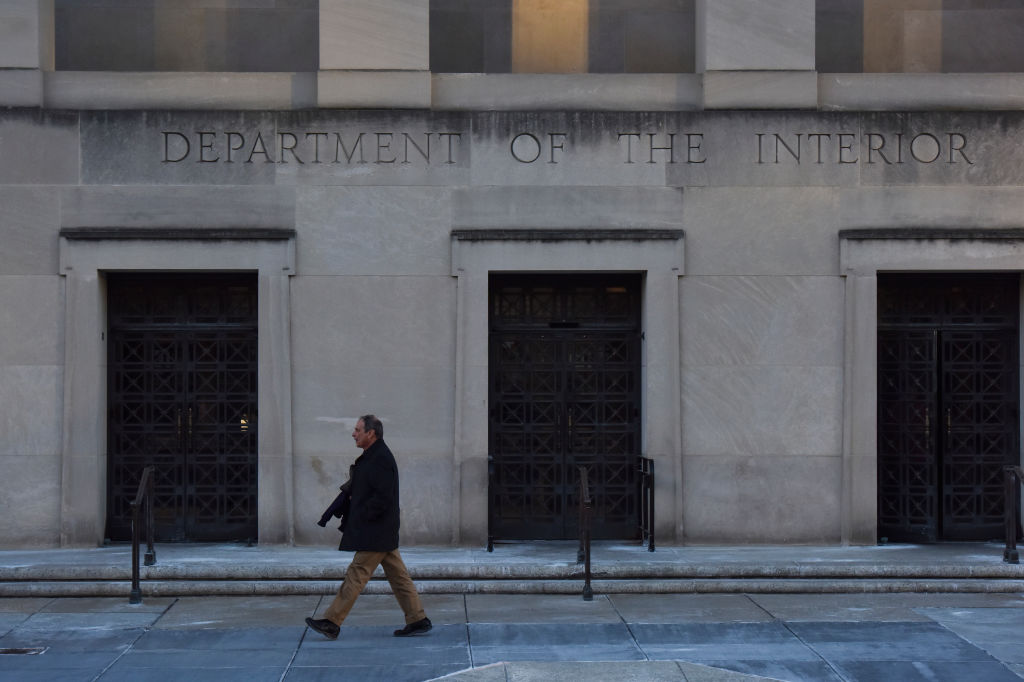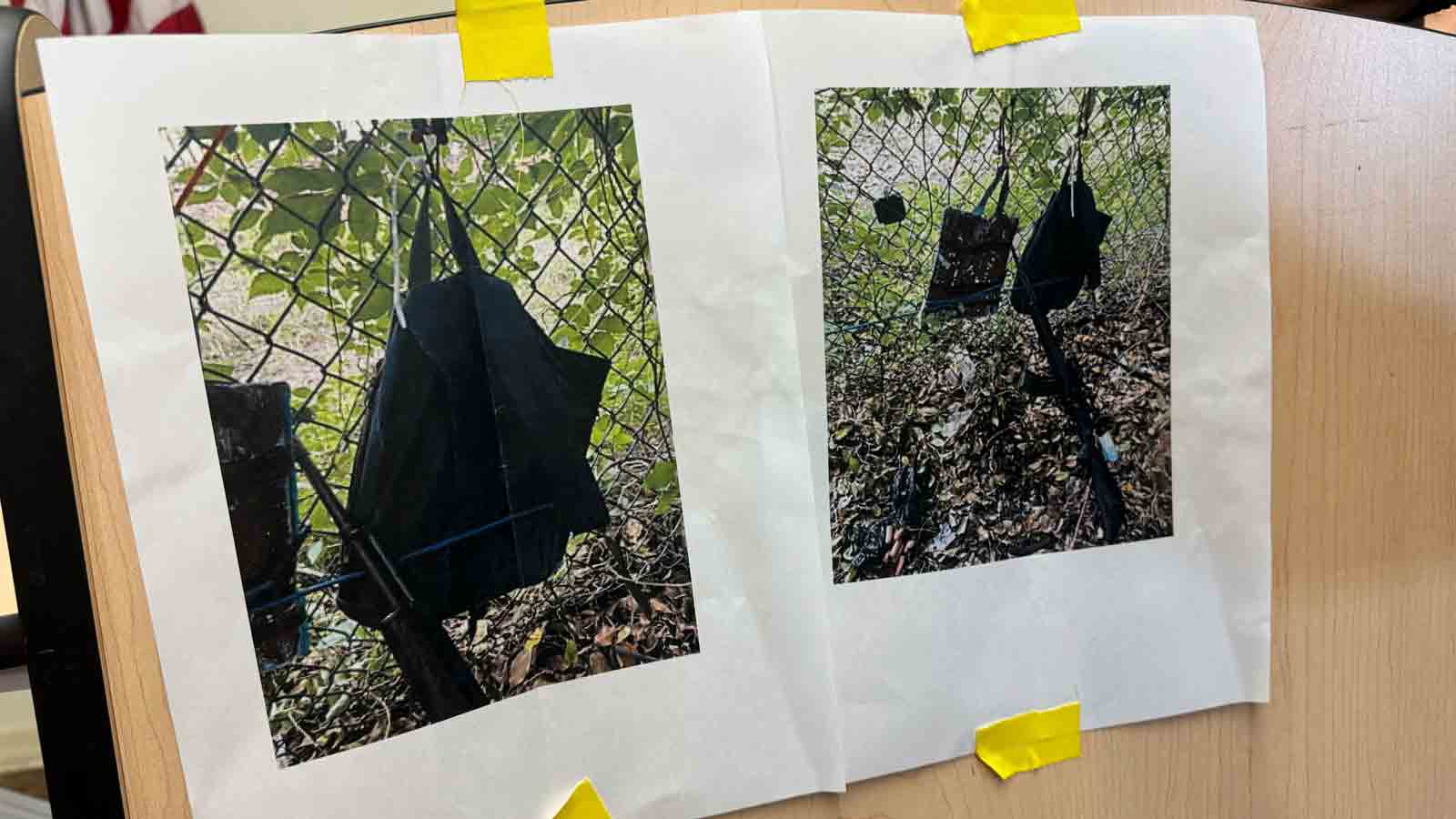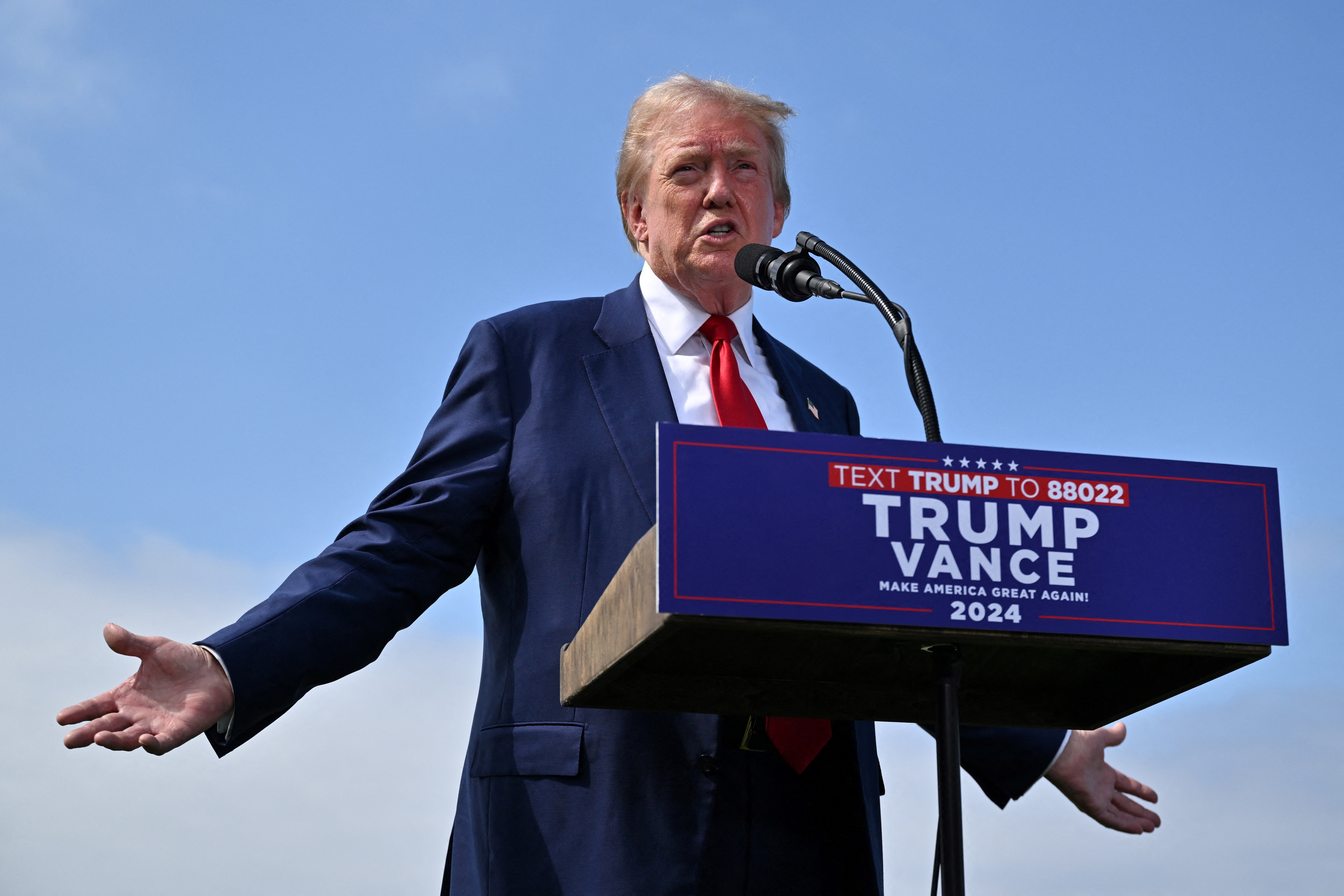
On the first day of his American National Government class, Prof. Kevin Dopf asks how many of his students are United States citizens. Every hand shoots up.
“So, how did all you people become citizens?” he asks. “Did you pass a test?”
Watch NBC6 free wherever you are
>“No,” one young woman says tentatively. “We were born here.”
It’s a good thing. Based on his years of making his students at the University of South Carolina Beaufort take the test given to immigrants seeking U.S. citizenship, most would be rejected.
Get local news you need to know to start your day with NBC 6's News Headlines newsletter.
>“Thirty, 35% of the students will pass it,” says Dopf, a retired Army lieutenant colonel and former West Point instructor. “The rest of them are clueless. I mean, they’re just clueless.”
Most states require some sort of high school civics instruction. But with surveys showing that a third of American adults can’t name the three branches of the federal government, and one in which 10% of college graduates think Judith Sheindlin – TV’s “Judge Judy” – serves on the U.S. Supreme Court, many think we should be aiming higher.
Over the past few years, a small but growing number of states have begun requiring students at publicly funded colleges to complete a civics requirement. That comes as polling indicates civics education is wildly popular across the political spectrum.
Civics — the study of citizens’ rights and responsibilities — fosters a sense of unity, advocates say, and an ability to deal with disagreement. It empowers citizens, and many people believe it could help heal America’s divides. Having it in higher education means they can look at issue in more sophisticated ways, perhaps weaving it into other classes.
“I feel we are in the business for making a case for America,” said Louise Dube, head of iCivics, which promotes civics education.
US & World
But what does it mean when those talking about civics often can’t be, well, civil?
Take North Carolina, where lawmakers and academics got into a heated battle over who should decide how civics would be taught.
Last year, North Carolina Republicans introduced the REACH Act — an acronym for “Reclaiming College Education on America’s Constitutional Heritage.” The bill required undergraduates to take at least three credit hours in American government and read a series of major U.S. history documents, from the Declaration of Independence to Martin Luther King Jr.’s 1963 “Letter from Birmingham Jail.” They would also have to pass a final exam worth 20% of the final grade.
If the bill seemed anodyne on the surface, it met with intense pushback. Critics pointed to the bill’s “reclaiming” title, its attempt to dictate curriculum usually set by professors and that it was drafted by Jameson Broggi, an avowedly conservative U.S. Marine Corps captain and lawyer who has said curriculum must include “devotion to American institutions and ideals.”
The North Carolina act easily passed the state House in March 2023 and a first reading in the Senate. It seemed on its way to victory.
University of North Carolina officials and faculty were not happy.
“We tried to slow this down in House but had zero success,” Bart Goodson, senior vice president of government relations for the 16-school UNC system wrote to a fellow administrator in an April 2023 email, obtained by Broggi through an open records request.
“It was a ‘wrap yourself in the flag’ type bill and anyone who spoke against was essentially viewed as non-American,” Goodson wrote.
In the News
So, as the idea moved slowly through the legislative process, UNC faculty took matters into their own hands.
Wade Maki, chair of the UNC faculty assembly, worked with professors from four other campuses, including two historically Black universities, to draft a set of learning outcomes. They studied what’s being done in other states.
The resulting proposal, called the “Foundations of American Democracy,” mirrors the REACH Act in many ways. They even added Abraham Lincoln’s Gettysburg Address to the list of required documents.
It seemed like everyone wanted the same thing.
But supporters of requiring civics through legislation were troubled – why did the faculty object to their version?
“What are these people afraid of?” asked Michael B. Poliakoff, president and chief executive officer of American Council of Trustees and Alumni, which helped Broggi draft the North Carolina act and a similar one that passed in South Carolina three years ago.
“As if understanding the founding documents and the pivotal moments in our history, culminating with letter from Birmingham Jail, would be too disturbing, too retro.”
That’s not the point, the academics say.
Unlike standards in K-12 schools, college faculty typically decide the content of individual courses. It’s seen as a core of academic freedom.
“Faculty are the primary owners of the curriculum.” says Maki, who teaches philosophy at UNC-Greensboro. “We know what works in ways that sometimes someone outside of higher ed may not know what works.”
The UNC board of governors, all 24 of whom were appointed by the GOP-led legislature, unanimously approved the plan in mid-April. Details are still being ironed out, with the requirement applying to students entering the system starting July 2025. (The NC REACH Act’s sponsors, displeased with the UNC plan, have vowed to revive the legislative effort next year.)
According to the conservative, New York-based Civics Alliance, legislation in at least 10 states — Arkansas, California, Florida, Georgia, Missouri, Nevada, South Carolina, Texas, Utah, and Wyoming — require undergraduates at public universities to take at least one American history and/or government course. The requirement is being enacted, or at least discussed, in other states.
And the Alliance — which rails against “identity politics” and “radical New Civics activists” — is looking to spread the word.
The organization has created model legislation that calls for the “’study of and devotion to America’s exceptional and praiseworthy history.’” David Randall, the alliance’s executive director, said its materials had “informed” legislation in Florida, Iowa and Texas, but declined to say what other states might have reached out.
Some state college systems, like UNC, haven’t waited for a legislative mandate to act.
For example, students at Indiana’s Purdue University and its satellite campuses can choose from three paths — write reflections after attending six approved civics-related events, listen to 12 podcasts and take a series of quizzes or complete one of 13 politics or history courses — and pass an exam. University of Arizona system faculty are currently developing “American Institutions” curricula to fulfill a requirement from the board of regents.
Professors acknowledge not all students appreciate the forced civics learning.
“Some view it as the vegetable in a meal, some view it as the dessert. For some, the goal is just to finish the meal,” said David Reingold, dean of Purdue’s College of Liberal Arts, who oversaw the implementation of the system’s civics program.
The Civics Alliance says America’s colleges, which train K-12 teachers, have been “taken over by a radical establishment determined to replace proper civics education with pedagogies such as Critical Race Theory and action civics ...” Whitney Ross Manzo, an associate professor of political science at Meredith College in Raleigh, says fears about political indoctrination assume “a power that faculty simply don’t have.”
“If I could force something on my students, it would be to read their syllabus and do their homework. I don’t have the power to change their political ideology,” said Manzo, who once taught in Texas.
Back in Bluffton, Dopf has his work cut out for him.
After some introductory remarks, Dopf tells his students to take out a piece of paper and pen.
“This is your first test.”
The 14 questions are relatively simple: How many members in the U.S. Senate? What are the requirements to be president? How long is the term for members of the House of Representatives?
Would-be citizens must get six of 10 answers correct to pass. Dopf holds his students to a lower standard — just seven of 14.
As he expected, about 70% flunked.
One student thought Clarence Thomas was chief justice of the Supreme Court. Another put down that the Declaration of Independence was signed in 1667.
“To miss basic facts like that,” Dopf says, exasperation in his voice. “We need to develop better skill sets for our students so that we have a better democracy.” (In fairness, he says even 30% of his West Point cadets failed the quiz.)
Audra Hillman, 18, a freshman from Wake Forest, North Carolina, took two politics classes in high school. So, how'd she do?
“I probably would have got kicked out,” she says with a nervous chuckle.
Hillman wants to eventually work with special needs kids but doesn’t resent having to squeeze in this civics class.
“Everyone should vote," she says. "Like, it’s your duty as an American citizen. And I think that everyone should go out and be educated.”







